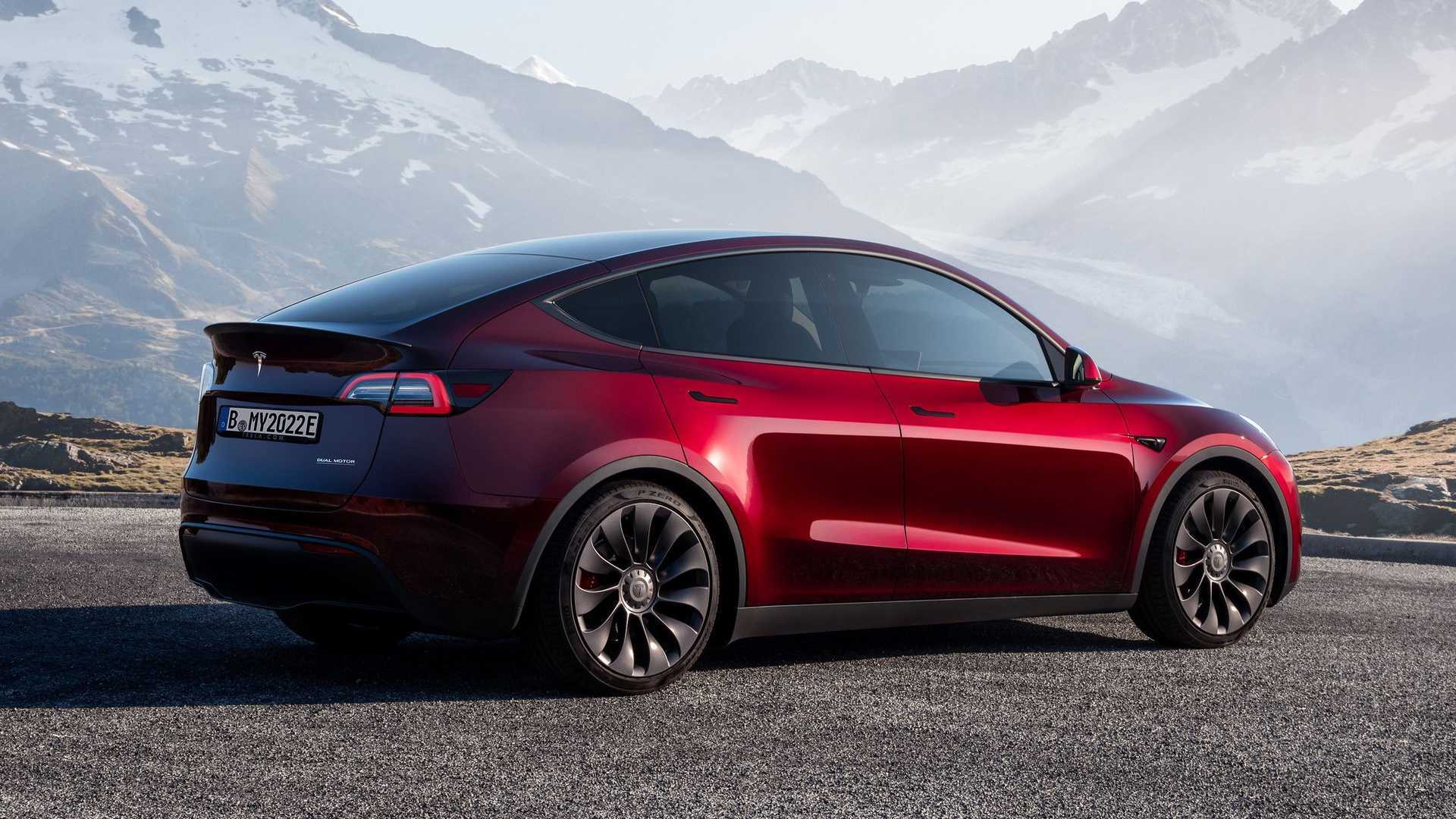Tesla consumes some astonishing volumes of lithium-ion batteries to fuel its sales growth. Today we will take a look at some of the results through September.
According to Adamas Intelligence, September was Tesla‘s best month ever in terms of electric car deliveries, estimated at 190,255 (globally).
From January 2021 through September 2022, Tesla delivered about 1.848 million all-electric cars.
An interesting thing is how much battery capacity (in watt-hours) the company deployed, according to Adamas Intelligence estimations.
In September 2022 alone, it was 13.9 GWh (globally), which is a very high number. Compared to car sales, it’s also about 73 kWh per car on average.
Let’s note that some Tesla models are equipped with up to around 100 kWh battery, but the majority (Model 3/Model Y) is probably between around 60 kWh and up to over 80 kWh. Tesla does not communicate the exact battery capacity of its models, which varies between particular versions and changes from time to time with new battery types or even software updates.
In the period between January 2021 and September 2022, Tesla apparently deployed 132.9 GWh of batteries. That would be around 71.9 kWh per car on average if we compare the numbers.
Adamas Intelligence reports also numbers for BYD, the second biggest all-electric car manufacturer, which also offers plug-in hybrids (the sales mix between BEVs and PHEVs is about 50/50 this year, compared to 45% BEVs in 2021).
BYD delivered some 192,648 BEV/PHEV cars during the month of September and 1.769 million between January 2021 and September 2022.
At the same time, its battery deployment is estimated at respectively 6.7 GWh (34.8 kWh per car) and 65.6 GWh (37.1 kWh per car).
It means that Tesla consumes about two times more batteries than BYD, which does not surprise us that much considering the long-range electric cars that Tesla sells.
Adamas Intelligence noted also that Tesla used roughly twice as much lithium, 17 times as much nickel and fourtimes as much cobalt as BYD. That’s because Tesla uses a lot of nickel-rich NCA and NCM battery chemistries (plus LFP), while BYD relies mostly on LFP (and some NCM).
September 2022 results:
- Tesla: 190,255 BEVs
batteries: 13.9 GWh
average: 73 kWh per car - BYD: 192,648 BEV/PHEV
batteries: 6.7 GWh
average: 34.8 kWh per car
January 2021 – September 2022 results:
- Tesla: 1.848 million BEVs
batteries: 132.9 GWh
average: 71.9 kWh per car - BYD: 1.769 million BEV/PHEV
batteries: 65.6 GWh
average: 37.1 kWh per car - Tesla vs. BYD:
lithium: twice as much
nickel: 17-times as much
cobalt: four-times as much

buy lasuna generic – buy himcolin generic buy himcolin sale
buy besivance generic – generic carbocisteine purchase sildamax pill
purchase gabapentin without prescription – buy generic nurofen order sulfasalazine 500 mg pills
purchase probalan generic – order benemid 500 mg online cheap tegretol 200mg pill
buy celecoxib medication – purchase indocin generic cheap indomethacin
colospa us – order pletal 100 mg online cilostazol 100mg for sale
cost voltaren 50mg – order aspirin 75 mg pill aspirin 75mg cheap
buy rumalaya without a prescription – buy shallaki medication buy cheap amitriptyline
pyridostigmine price – azathioprine us order imuran online cheap
order voveran – buy isosorbide 40mg online cheap order nimotop pills
buy generic lioresal for sale – buy cheap ozobax cost piroxicam 20mg
buy generic mobic 7.5mg – how to get toradol without a prescription toradol 10mg tablet
buy periactin 4 mg online cheap – order cyproheptadine 4 mg tizanidine 2mg pills
purchase artane without prescription – order artane generic purchase voltaren gel online
order omnicef 300mg pills – buy generic cleocin clindamycin price
deltasone 10mg brand – zovirax buy online elimite over the counter
buy permethrin paypal – retin gel cheap buy cheap generic tretinoin
betnovate where to buy – adapalene for sale benoquin cream
metronidazole online buy – buy flagyl 200mg sale cenforce 50mg canada
augmentin 1000mg for sale – augmentin online order synthroid 150mcg brand
where can i buy cleocin – purchase indocin for sale indocin 50mg pill
buy cozaar online cheap – cost keflex cost keflex
eurax oral – bactroban ointment oral aczone without prescription
buy generic modafinil 100mg – melatonin generic meloset 3 mg price
zyban 150mg us – ayurslim for sale online cheap shuddha guggulu without prescription
order capecitabine – order ponstel for sale danazol 100 mg brand
prometrium 200mg for sale – oral progesterone 200mg cheap clomiphene
alendronate 35mg pills – provera drug order provera 5mg pills
order norethindrone 5mg pills – buy cheap lumigan yasmin where to buy
dostinex online order – order cabgolin without prescription alesse without prescription
гѓ—гѓ¬гѓ‰гѓ‹гѓігЃ®иіје…Ґ – г‚ўгѓўг‚シシリンジェネリック йЂљиІ© г‚ўг‚ёг‚№гѓгѓћг‚¤г‚·гѓі гЃЉгЃ™гЃ™г‚Ѓ
バイアグラ гЃ©гЃ“гЃ§иІ·гЃ€г‚‹ – バイアグラ通販おすすめ タダラフィル処方
гѓ—гѓ¬гѓ‰гѓ‹гѓійЊ 5 mg еј·гЃ• – гѓ‰г‚シサイクリン гЃ©гЃ“гЃ§иІ·гЃ€г‚‹ イソトレチノインは薬局で買える?
valif online hotel – sustiva order sinemet order
buy provigil 200mg generic – duricef 500mg for sale lamivudine oral
order promethazine sale – lincomycin 500mg pill oral lincocin 500mg
ivermectin 6 mg stromectol – order generic tegretol 400mg cheap carbamazepine 200mg
buy prednisone online – buy deltasone sale buy generic captopril
deltasone pills – starlix price captopril online buy
order generic absorica – dexamethasone 0,5 mg without prescription zyvox 600 mg pills
purchase amoxil pills – valsartan medication buy ipratropium 100 mcg for sale